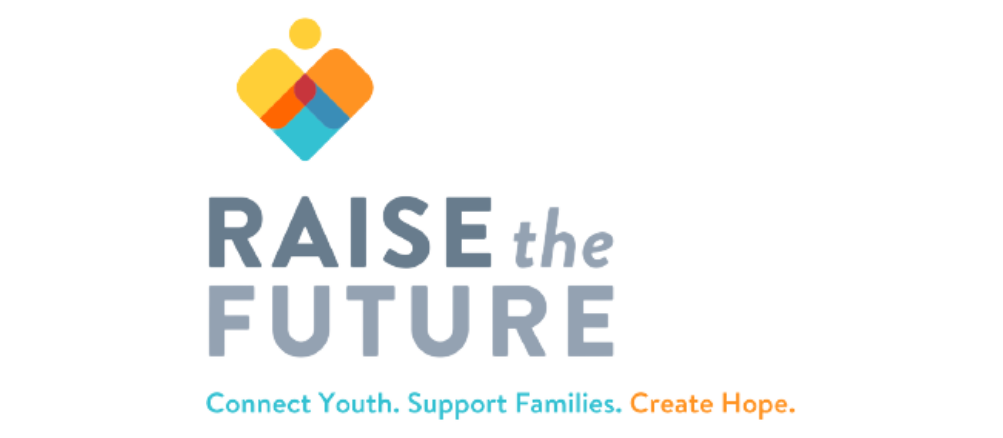Trust-Based Relational Intervention® (TBRI®) is the evidence-based parenting and intervention model at the heart of Raise the Future’s Family Support work. The theory behind the model, which was developed by Dr. Karyn Purvis and Dr. David Cross, is summarized in this video. Raise the Future is uniquely recognized as one of a select few key partners of the Karyn Purvis Institute of Child Development (KPICD) at Texas Christian University (TCU).
Raise the Future has offered TBRI® Caregiver Training and related services in Colorado and Utah for several years. In 2019, we were able to expand our Family Support program to offer the courses and services in Clark County, Nevada. In addition to the four-course Caregiver Training Series, all three states currently offer Professional Consultation, as well as monthly Connection Groups for caregivers. Raise the Future also offers a TBRI®-informed Rest & Recharge (respite) service in Colorado, plus In-Home Coaching services using the TBRI® model for implementation in the home in Colorado and Nevada.
Brooks Kaskela, Raise the Future’s Director of Family Support, shares:
TBRI® has significant impact for caregivers and professionals because it is an evidence-based, holistic model that takes into account the whole child. It provides deep understanding into the meaning behind behaviors and the unique needs of the children and youth that we care for. Not only that, but it provides concrete tools every step of the way, so that training attendees walk away with realistic steps to make true and lasting change in their homes and in the services they provide. It takes into account trauma and relationships and provides hope and healing for every child
Our team received the feedback below from Steve* and Alma*, a pair of caregivers who participated in a virtual TBRI® Caregiver Training series:
My wife and I have been foster parents in Clark County, Nevada, for four years and have cared for many children for various lengths of time. The training provided by Clark County, both during the licensing process and continuing education, has been very beneficial. In fact, our licensing instructor was exceptional. Yet, as many foster parents soon find out, we found ourselves at a loss when faced with complex issues that came up with our foster children from hard places. My wife Alma* and I have spent much of these four years feeling frustrated, inadequate, and like failures at those times when we felt unable to help our kids effectively when they needed it the most.
Alma learned about TBRI® on a Facebook group for foster parents that she frequents. She registered and attended the TBRI® course because we couldn't both be away from our children simultaneously. And frankly, I had grown cynical about the effectiveness of what I assumed was another theory on how to solve the problems we experience that was no better than what we came up with on our own. I regret that assumption now, and thank goodness Alma was willing to give it a try because TBRI® is powerful and very effective. It has changed our lives and the lives of our children.
After attending her TBRI® class each day, Alma would come home and share as much as she could with me. Our then four children provided plenty of opportunities to test these principles, and the first time they did, we were shocked at how effective the TBRI® approach was. Previously frustrating and chronic behaviors got resolved relatively quickly and in a positive, trust-building way by working with the child using TBRI® techniques. I immediately saw the value and registered to take the next class available.
Now that my wife and I are both TBRI®-informed, our children benefit from a consistent approach to raising them and solving problems. And when one of us becomes overwhelmed, the other can jump in and take over. We are on the same page now, so there is no longer any tension between us regarding how we should deal with our kids. Using TBRI® principles consistently, our children are experiencing fewer events, and when they do occur, they are far less severe and more quickly resolved than when we did not use TBRI® principles. Our kids are happier and are developing more rapidly, both mentally and emotionally. They are more content, calmer, sleeping better, learning faster, eating better, and interacting more positively merely because each of them is less stressed -- and as a result, there is far less stress in our home. Most of all, they are closer to us and trust us more now than ever.
The unexpected positive is that Alma and I now use TBRI® principles with each other, which has been invaluable at keeping harmony in our home during stressful times. I have even used TBRI® principles when dealing with other adults, including in my business dealings. At the risk of sounding trite, understanding and practicing TBRI® principles when dealing with others has changed our lives.
I believe very strongly in TBRI® now. As a former police officer, I wish I had been TBRI®-informed when serving my community. I am confident I would have been more prepared to deal with crises (and as a patrol officer and SWAT Cop, I dealt with a crisis on almost every call).
I think TBRI® should be standard training for all foster parents as well as all DFS staff as it is a highly effective tool: a necessary tool, I believe, when dealing with children from hard places and adults from hard places, which comprise the overwhelming majority of human interactions DFS staff and foster parents experience daily.
--
Click here to learn more about TBRI® at Raise the Future.
*names have been changed to ensure confidentiality

